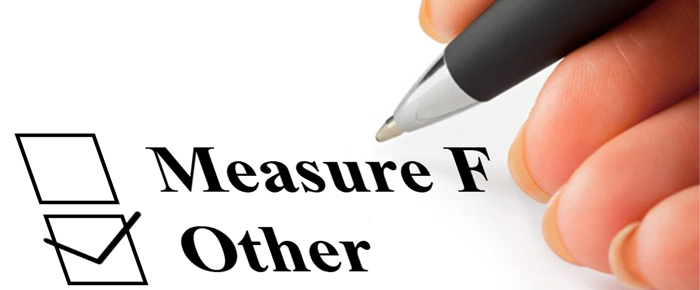
By John Paul Valdez
In June, Desert Hot springs voters will be asked about a ballot initiative referred to as Measure F, a proposed vacant parcel tax increase from $36 per acre to $360, or about 1000 percent. Those in favor of the measure are saying that alternatives do not exist, and that bankruptcy is virtually certain if the measure fails. That is not the case, thankfully. Here are some options that would be far less disruptive for DHS voters to consider.
In looking at the budget, the city says it has about a $4 million dollar expected shortfall. Approximately half of that, $2 million dollars annually, is already being paid by DHS residents to Medical Dispensaries located in PS. This calculation comes from the lists already available of current DHS buyers (not new buyers).This is “money left on table” when the opening of such a distribution branch can easily and quickly be addressed in DHS. Because these purchases and the associated taxes are already being made, this alternative results in NO NEW TAXES to DHS residents whatsoever. Additionally, if existing patients already using these services don’t have to spend the gas and time to go to PS to get their medication, the additional economy of monies not spent on those peripheral costs would be available to buy more in DHS. This, in turn, would result in less dilution of the tax base. DHS residents could shop more here. Currently, they are often forced to shop for almost anything at all outside of DHS. This medical dispensary derived revenue would arrive into city coffers quickly and before any parcel tax is collected.
Raising taxes is always difficult on the public, but doing so when such measures are unnecessary is unconscionable when there is money on the table that simply needs to be claimed by city officials. Also, raising taxes by 1000 percent is very rare indeed. A much smaller raise in the vacant parcel tax would be easier to pass in a vote and easier for the developers and current land owners to pay as everyone assumes a greater responsibility in a town faced with such great financial difficulties.
Because the sales tax is so much lower in DHS than in PS, a small one quarter percent increase combined with these other measures could also be considered. This would result in a still comparatively lower sales tax when compared to PS. The transient occupancy tax (TOT) or “hotel tax” is another area that could eventually be considered. That doesn’t hit the residents directly.
Generally, one doesn’t raise taxes unless specific allocations are made for the sources and uses of the funds, but Measure F does not guaranty the saving of the city’s currently owned police department, nor does it guaranty avoidance of the lessening of city service levels given the dire straits of the budget. Statements have been made to the public that are misleading in that regard.
Those demanding passage of the measure with an “or else” attitude that threatens bankruptcy and no “plan B” strategy, are giving the public a false two-pronged choice. There are less costly and less disruptive alternatives. Strategy is the result of planning, not desperate measures of windfall monies that don’t actually solve debt nor invest in structural improvements within the city. Thankfully, there are plenty of alternatives that haven’t been given sufficient consideration, and the city can avoid bankruptcy if calm minds and closer scrutiny prevail. Everyone wants DHS to succeed.











































